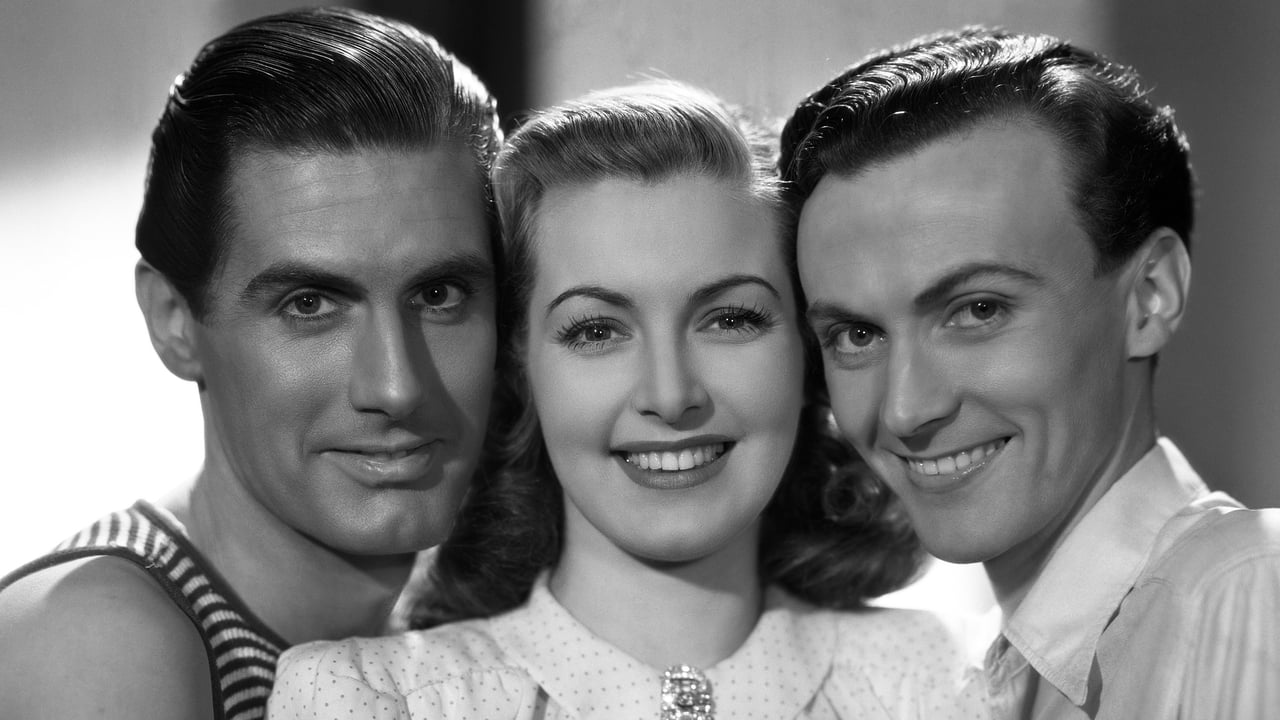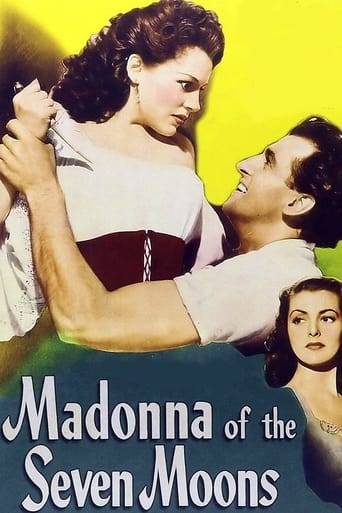butlerstc
Very intense and interesting story. Also I found it fascinating that they were that advanced in their knowledge of how trauma affects the brain , especially since the medical community *just* diagnosed schizophrenia as dis associative identity disorder in recent years. I didn't expect them to tackle this subject so honestly and that was very refreshing. The scientific approach made the plot line of the movie totally realistic and believable even though it was a melo drama. Each character was well casted and well played, especially the woman in the lead role and her husband and lover. I liked this movie better tan the 10 faces of Eve. Excellent movie would watch again
writers_reign
Ah, those dear dead days beyond naivety ... when no one found it even a smidgen strange that in a film set entirely in Rome and Florence the entire cast spoke as if at the Hunt Ball in Cheltenham, when the make-up department didn't think it necessary to make Phyliis Calvert at least SEEM old enough to be the mother of Patricia Roc rather than her kid sister (there was, in fact, less than a year between them)when it didn't occur to anyone involved that berets are worn by men in France rather than Italy and ... oh well you get the picture. Poor Phyllis Calvert is so out of her depth as a feral knife-wielding, cigarette smoking gypsy-type wanton that the waters are above her head but probably Margaret Lockwood was working that week and Jean Kent was thought only fit for support. Stewart Granger is on hand doing his usual 'it's all about ME, screw the picture' bit and a bemused time is had by all.
James Hitchcock
British films of the forties, such as the well-known "Brief Encounter", were often characterised by emotional reserve, but occasionally the British film industry could go to the opposite extreme and produce full-blown melodramas, marked by an excess of emotion rather than by a lack of it. BBC2, as part of a season of famous British films, has recently shown two examples from 1945, "Madonna of the Seven Moons" and "The Seventh Veil". (It is interesting that both titles feature the number seven, often thought to have some mystical significance)."Madonna of the Seven Moons" was made by Gainsborough Pictures, a company often associated with historical melodrama. The plot is, if anything, even more hysterically over-the-top than that of "The Seventh Veil". The action is set in Italy. Maddalena, a young girl, is attacked by a peasant while out walking in the countryside. (We presume that she is raped, but in the moral climate of the forties this could not be referred to explicitly). Maddalena marries a wealthy man, Giuseppe Labardi, but her ordeal has left her mentally disturbed and she develops a split personality. ("The Seventh Veil" also concerns a woman suffering from psychiatric illness). Whenever confronted with an emotional crisis she suddenly, and inexplicably, disappears from her home and reappears in a working-class district of Florence where she lives a double life as the gypsy girl Rosanna, the mistress of the criminal Nino Barucci. (The title is derived from the symbol of the seven moons carved above the door of Barucci's home). While she is living her life as Rosanna, she has no memory of her life as Maddalena, and vice versa, but eventually something will reverse the change in her personality and she will return to her life as part of the bourgeois Labardi family. Maddalena's family have no idea where she goes to when she vanishes, and much of the plot concerns the efforts of her daughter Angela to discover the truth about her mother. (Nino is equally concerned to find out where his mistress goes when she is not with him).The film's Italian setting was presumably intended to be more glamorous and exotic than a British one would have been, and Barucci and the other working-class characters in the "Rosanna" scenes do indeed seem to be living in a sort of prettified, picturesque ethnic poverty. The "Maddalena" scenes, however, do not seem exotic at all. Indeed, apart from the names of the characters there is nothing that might suggest that these scenes are set anywhere other than in Britain. The Labardis have a number of British friends, and the British characters and the Italian ones (all played by British actors) all speak with the same upper-class English accents. Although the film is set in the late 1930s, no mention at all is made of Mussolini, the Fascist party or the approaching war. The film was made very late in the war, after Italy had switched to the Allied side. Perhaps it was felt that to mention such matters might be tactless towards out new-found allies.The casting of Phyllis Calvert as Maddalena/Rosanna (a woman in her late thirties) and of Patricia Roc as Angela (in her late teens) is curious. Calvert and Roc were two of the most glamorous British actresses of the period, but were almost exactly the same age, both being twenty-nine when the film was made. It is therefore difficult to envisage them as mother and daughter. Stewart Granger, who plays Nino, was an actor accustomed to playing handsome, dangerous and fascinating rogues (Jeremy Fox in "Moonfleet" is another good example), but here he is unable to perform the service which James Mason performed for "The Seventh Veil", that of lifting the film above the level of the mundane.There are some good things about the film; Calvert, for example, copes well with the challenge of effectively playing two different characters in one film. Overall, however, this is a mediocre film marked by overblown melodrama and a plot which is excessively complex and at times (especially during the first half) confusing. 5/10
owenrussell
POSSIBLE SPOILERS!!!!!!I was taken to see this film by my parents (in the first week of April 1945) and so had no option but to sit through it. The scenes involving the change of mood in Maddalena when her split personality came into play, accompanied by matching music, I found absolutely and completely terrifying, so much so that I hardly dared look at the screen for fear of what would happen next. Sinister, mysterious, shadowy, menacing - these were my impressions of the film. To see it on video many years later was to be reminded vividly of these childhood reactions. An absolutely unique film! I have no doubt that it can be criticised on many technical grounds, but that meant nothing to a boy of 9. The whole thing was quite simply an extraordinary experience.

